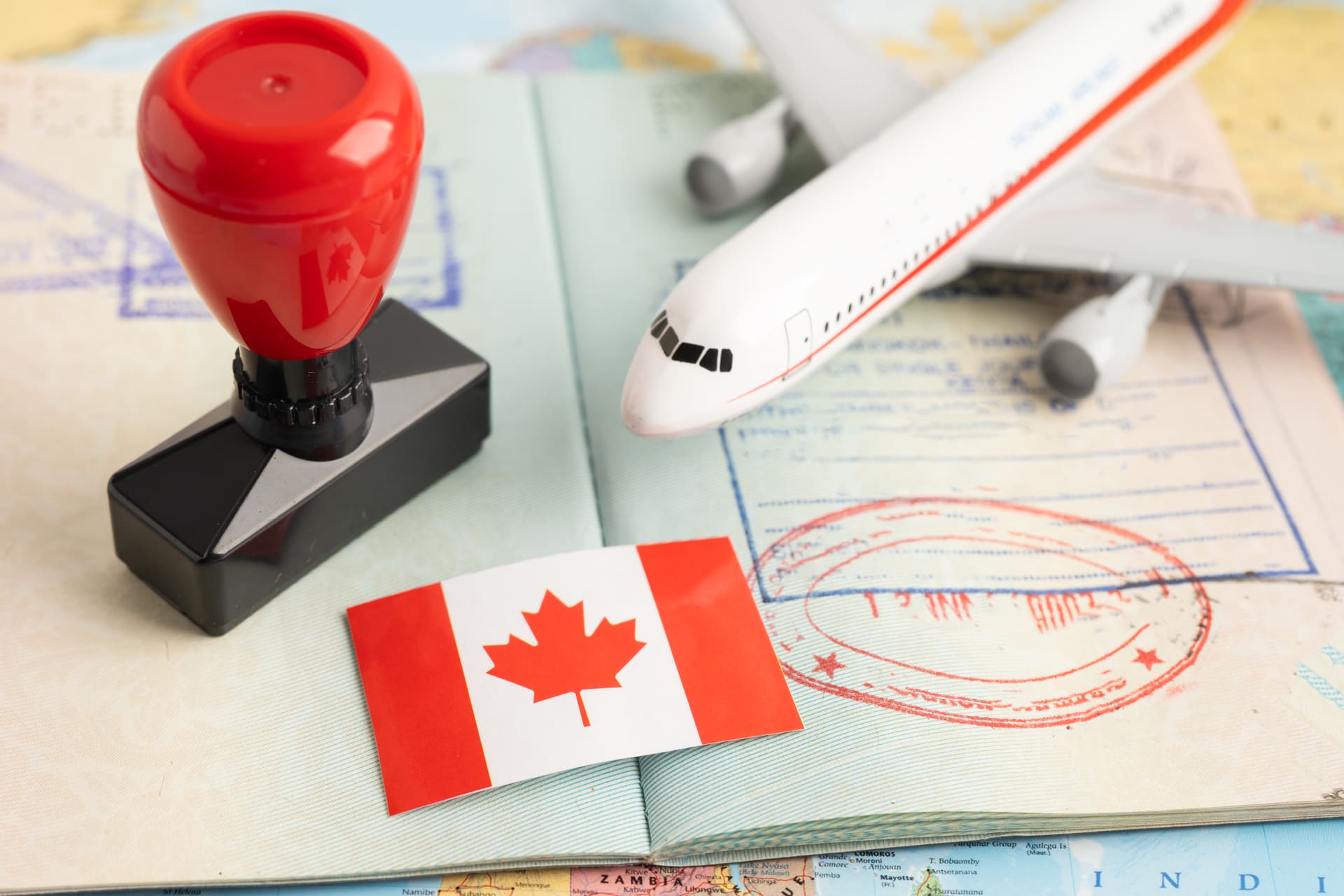
Maintaining your Permanent Resident (PR) status in Canada demands thoughtful planning and diligent tracking of your residency days. Specifically, you must accumulate at least 730 days in Canada over any five-year period, a rolling requirement that does not need to be consecutive.
While this grants flexibility for travel, study, or work abroad, falling short of meeting this threshold can jeopardize your PR status and access to vital rights and benefits.
Yet, life is not always predictable. Unexpected travel, complex family or work situations, or confusion over documentation can put this requirement at risk. That is where sound legal guidance becomes invaluable, helping you track your days, interpret the rules, and buffer against inadvertent missteps.
Contact our immigration lawyer in Toronto today, to protect your status and secure your future in Canada.
A permanent resident is someone who has immigrated to Canada and been granted the right to live here permanently, but who is not yet a Canadian citizen. Unlike a temporary resident or protected person, permanent residents have significant rights and freedoms, but they also have important obligations to maintain their status.
The fundamental requirement to maintain your permanent resident status centres on physical presence. This requirement applies whether you’ve held your permanent residence status in Canada for six months or twenty years.
Immigration, Refugees and Citizenship Canada (IRCC) carefully tracks compliance with residency requirements to maintain Canadian permanent resident status. The government recognizes that permanent residents may need to travel for work, family, or personal reasons, but the law requires a substantial connection to Canada to justify retaining permanent residence privileges.
The 730-day requirement means you must be present in Canada for 730 days within any consecutive five-year period to maintain permanent residence status. These 730 days do not need to be continuous – you can leave and return multiple times, as long as your total physical presence meets the threshold.
The calculation uses a rolling five-year window, not a calendar period. For individuals who have been permanent residents for more than five years, IRCC examines the five years immediately before any assessment. For newer residents, the calculation covers their first five years of permanent resident status in Canada.
Key aspects of the calculation include:
| Years reviewed | Days in Canada | Days outside Canada | Meets requirement? |
|---|---|---|---|
| Year 1–5 total | 750 days | 1,075 days | ✔️ Yes |
| Year 1–5 total | 700 days | 1,125 days | ❌ No |
| Most recent 5 years | 800 days | 1,025 days | ✔️ Yes |
| Exactly at minimum | 730 days | 1,095 days | ✔️ Yes (but risky if records are incomplete) |
📌 These examples show how IRCC reviews any rolling five-year period, meaning your compliance depends on the specific years assessed, not just your first five years in Canada.
You can leave Canada after becoming a permanent resident, but you must carefully manage your time outside of Canada to meet ongoing residency requirements.
New permanent residents often worry about travel plans or work commitments outside Canada. The key considerations include:
For those who become a permanent resident and immediately face work or family obligations abroad, we strongly recommend consulting with an immigration professional to develop a compliance strategy that protects your status.
Need trusted immigration support in Brampton? Contact our immigration lawyer in Brampton today for clear, confident guidance every step of the way.
You can stay outside Canada for a maximum of 1,095 days (three years) within any five-year period while still meeting residency requirements. However, this maximum assumes perfect compliance otherwise and leaves no margin for error.
Calculating safe absence periods requires understanding your specific timeline and circumstances. A Canadian permanent resident must consider several factors:
| Maximum Safe Absence | Risk Level | Recommended Documentation |
|---|---|---|
| 1-6 months | Low | Basic travel records |
| 6-12 months | Moderate | Detailed travel journal, proof of ties to Canada |
| 1-2 years | High | Comprehensive documentation package |
| 2-3 years | Very High | Legal consultation recommended |
Canadian immigration law recognizes that permanent residents may need to spend extended periods outside Canada for legitimate reasons. In specific circumstances, time spent outside Canada may also count towards your 730-day requirement, helping you maintain your status without compromising career or family obligations.
These exceptions require careful documentation and only apply in specific circumstances. The time spent outside Canada under these provisions counts fully toward your 730-day obligation, but you must prove eligibility and maintain proper records.

You can maintain your permanent resident status while working overseas for a Canadian business under strict conditions. The employment exception allows time spent working for a Canadian company with overseas offices to count as days physically present in Canada.
Requirements for this exception include:
📌 This exception covers employees sent to overseas offices, contractors working for Canadian companies abroad, and those assigned to affiliated enterprises or clients of Canadian businesses overseas. The key requirement is that a Canadian business’s overseas office or head office in Canada controls and authorizes your foreign assignment.
The accompaniment exceptions recognize that family relationships may require permanent residents to spend time outside Canada while supporting Canadian citizen family members or permanent resident spouses with qualifying employment.
Accompanying Canadian citizens: Any day spent outside Canada is considered a day physically present in Canada when you are with your Canadian citizen spouse or common-law partner, your Canadian citizen parent if you are under 22, or your Canadian citizen child if you are the parent.
Accompanying employed permanent residents: A permanent resident accompanies a spouse or common-law partner who is also a permanent resident and employed full-time by a Canadian business or public service. This exception also applies to children accompanying permanent resident parents in qualifying employment.
📌 Keep detailed records of travel dates, relationships, citizenship status, and employment details. The permanent resident spouse needs only to be employed by the qualifying Canadian business; the overseas work itself need not be for that business.
Proving you meet the permanent residence requirements depends entirely on your documentation. Immigration officers have discretion to accept or reject your evidence, making thorough record-keeping essential for maintaining your status and avoiding complications when you apply for a permanent resident card renewal or re-enter Canada.
Immigration officers expect you to prove you meet the permanent residence requirements to the satisfaction of their assessment. Inadequate documentation can result in loss of status even if you actually comply with residency requirements to maintain your position as a permanent resident.
| Document Type | Purpose | Retention Period |
|---|---|---|
| Passport stamps | Entry/exit proof | Permanent |
| Travel receipts | Trip verification | 5 years minimum, 7 years recommended |
| Employment records | Exception claims | 5 years minimum, 7 years recommended |
| Medical records | H&C grounds | Permanent |
Failing to meet residency requirements does not automatically cause you to lose your permanent resident status. You remain a permanent resident until Canadian immigration authorities make an official determination that you’ve lost your status through formal proceedings.
When your compliance is assessed, whether at the border, during a permanent resident card renewal, or in a travel document application, an immigration officer will examine your residency calculation. If you cannot prove you meet the requirements, several outcomes are possible:
✔️ Our firm has extensive experience representing clients facing residency and sponsorship compliance issues. For instance, in D.G. v Minister of Citizenship and Immigration (2021 FC 1468), we successfully overturned a rejection of an overseas sponsorship for a conjugal partner from Saudi Arabia, where both IRCC and the Immigration Appeal Division had found the requirements unmet.
The Federal Court agreed with our arguments that the tribunal had improperly evaluated the relationship history and ordered the application back to IRCC for processing.

If you cannot meet the 730-day requirement, you may qualify for an exemption based on humanitarian and compassionate (H&C) grounds. These provisions recognize that exceptional circumstances beyond your control may prevent compliance with standard residency requirements.
H&C considerations evaluate factors such as:
📌 Successful H&C applications require comprehensive documentation and compelling evidence of exceptional circumstances. The assessment is discretionary, making professional representation valuable for presenting the strongest possible case.
If immigration authorities determine you don’t meet residency requirements, you have important appeal rights that can preserve your permanent resident status. The appeal process provides multiple opportunities to challenge negative decisions and present additional evidence.
We have built a strong record of advocacy in immigration appeals, including cases where officers failed to assess evidence fairly. We have overturned negative residency determinations by demonstrating that officers failed to properly consider evidence or applied incorrect legal standards.
💡 Recent success example: In our case A.M. v Minister of Citizenship and Immigration (2019 FC 270), we successfully represented a Pre-Removal Risk Assessment applicant from Iran at the Federal Court. The Court agreed that the officer had improperly rejected new evidence of ongoing danger and ordered IRCC to reconsider the PRRA application.
The appeal process requires strict attention to deadlines and procedural requirements. Missing a filing deadline can eliminate your appeal rights permanently, making prompt legal consultation critical when you receive an adverse decision.
Your permanent resident card and your permanent resident status are separate legal concepts. Understanding this distinction is vital for travel planning and compliance management.
| Situation | Card Status | PR Status | Can Travel? | Action Required |
|---|---|---|---|---|
| Valid card, meets residency | Valid | Valid | Yes | None |
| Expired card, meets residency | Expired | Valid | No | PR Card renewal or get PRTD |
| Valid card, may not meet residency | Valid | At risk | Yes, but risky | Calculate compliance |
| Expired card, doesn’t meet residency | Expired | At risk | No | Legal consultation |
Living in Hamilton and dealing with immigration concerns? Reach out to our immigration lawyer in Hamilton now for advice tailored to your needs.
Many permanent residents inadvertently jeopardize their status through calculation errors, documentation failures, or a misunderstanding of requirements. Avoiding these common pitfalls can protect your permanent residence and prevent costly legal proceedings.
Additional reading: What is the penalty for illegal immigrants in Canada
Successful permanent residence maintenance requires proactive travel planning that balances personal and professional needs with legal compliance. A strategic approach protects your status while maximizing your freedom to work and travel internationally.
| Travel Duration | Recommended Compliance Cushion | Additional Precautions |
|---|---|---|
| 1-3 months | 30+ day buffer | Basic documentation |
| 3-6 months | 60+ day buffer | Detailed travel journal |
| 6-12 months | 90+ day buffer | Legal consultation |
| 12+ months | 120+ day buffer | Exception documentation |

The Canadian immigration landscape continues to evolve, with recent policy changes and special circumstances affecting permanent resident obligations. Staying informed about current developments helps ensure your compliance strategy remains effective.
The Public Health Agency of Canada continues to monitor international health situations that could affect travel and return capabilities. Permanent residents working in health services or emergency response may have additional considerations for maintaining status while serving critical functions.
Complex permanent residence situations require professional legal guidance to navigate successfully. While basic compliance may be straightforward, certain circumstances demand expert analysis and representation to protect your status and achieve your goals.
Seek legal consultation when you face these situations:
Our firm brings over 20 years of experience in Canadian immigration law to every permanent residence case. We have successfully represented clients before the Immigration Appeal Division, Federal Court of Canada, and Supreme Court of Canada in precedent-setting cases that benefit all permanent residents.
We believe every case is unique and will never apply a “one size fits all” approach; we get to know each specific person and their situation, so we can provide tailored, innovative, and efficient solutions that help them achieve their goals.
When you choose our firm, we invest time in understanding your specific goals, circumstances, and concerns to develop strategies that protect your status while supporting your life plans.
✔️ Proven results: Our case results demonstrate our commitment to achieving positive outcomes for clients facing complex permanent residence challenges. From successful Federal Court appeals to favourable H&C decisions, we have the experience and dedication to protect your future in Canada.
Have immigration questions that can’t wait? Reach out today to our team online or call 416.988.8853 to speak directly with an immigration lawyer who can help.

If you’re outside Canada when your permanent resident card expires, you’ll need to apply for a Permanent Resident Travel Document (PRTD) from a Canadian visa office abroad. This process can take several weeks or months, so plan accordingly. Your permanent resident status remains valid even with an expired card, but you need proper travel documentation to return.
Yes, any day you spend even partially in Canada counts as a full day toward your residency requirement. If you travel to the United States in the morning and return to Canada the same evening, both days count fully toward your 730-day total if you were present in Canada during part of each day.
Exception claims require specific documentation depending on the type. For employment exceptions, maintain your employment contract, assignment letter, and proof of your employer’s Canadian status. For accompaniment exceptions, keep travel records, relationship proof, and documentation of the Canadian citizen or qualifying permanent resident’s status.
Extended absences for genuine family emergencies may qualify for humanitarian and compassionate consideration, even if you cannot meet standard residency requirements. Document the emergency circumstances thoroughly and consult with our firm about H&C applications if you face extended absences due to family crises.
Days spent in transit through Canadian airports or crossing Canadian territory typically count as physical presence if you officially enter Canada, even briefly. However, remaining in international transit areas without clearing customs generally does not count toward your residency requirement.
Serious criminal convictions can lead to inadmissibility findings and removal proceedings, regardless of your residency compliance. Different types of convictions carry different consequences, and our firm provides criminal rehabilitation services for those facing inadmissibility issues.